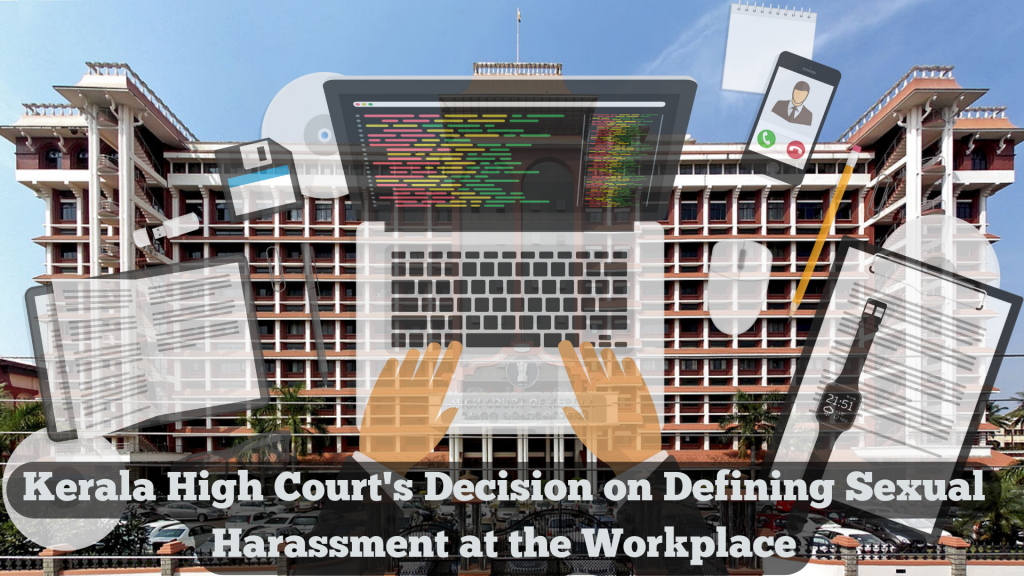
Kerala High Court’s Decision on Defining Sexual Harassment at the Workplace
Judgement Given On : 02/12/2020
The High Court of Kerala recently addressed this concern by providing a clarifying judgment on what falls under the definition of sexual harassment as per the Sexual Harassment of Women at Workplace (Prevention, Prohibition, and Redressal) Act, 2013 (POSH Act). Sexual harassment remains a pressing issue, and clarifying what constitutes it is essential. The case in question Dr.Prasad Pannian vs The Central University Of Kerala involved a complaint against Dr. Prasad Pannian, filed under the provisions of the POSH Act. Dr. Pannian contended that the allegations did not meet the criteria for sexual harassment under the Act. The petitioner argued that the POSH Act should be construed narrowly and that sexual harassment must involve a clear sexual advance to qualify. Additionally, it was suggested that merely discriminating based on sex does not necessarily constitute sexual harassment under the Act. Overly broad interpretations, it was argued, could lead to defamation claims and damage the reputation of individuals of the opposite sex, potentially resulting in legal consequences. The single judge in a reference order had relied on the case of Anil Rajagopal v. State of Kerala & Ors to define.
‘Sexual Harassment’ under Section 2(n) of the POSH Act, 2013. This section defines “sexual harassment” to include various unwelcome acts or behaviors, such as physical contact and advances, requests for sexual favors, sexually colored remarks, showing pornography, and other unwelcome sexual conduct, whether physical, verbal, or non-verbal. The Kerala High Court, in a division bench comprising Justices AM Shaffique and P Gopinath, recognized the gravity of sexual harassment at the workplace. The court emphasized that it violates the fundamental rights of equality (Article 14 and 15) and the right to live with dignity (Article 21) enshrined in the Indian Constitution. The court clarified that the definition of ‘sexual harassment’ under Section 2(n) of the POSH Act is inclusive. While it lists certain unwelcome acts in sub-clauses (i) to (v), it does not provide an exhaustive list. Therefore, any unwelcome behavior, whether direct or indirect, could constitute sexual harassment.
The court clarified that these sub-clauses serve as examples, and there may be other unwelcome behaviors not explicitly mentioned. The court held that for an act to be considered sexual harassment, it must involve a sexual advance, either direct or implicit, that makes the victim feel harassed due to their gender. The court emphasized that Section 3 of the Act absolutely prohibits subjecting a woman to sexual harassment at the workplace and that any harassment, even if it doesn’t align with sub-clauses (i) to (v), must be related to or connected with an act or behavior of sexual harassment. The judgement reaffirms the importance of preventing and addressing sexual harassment in the workplace. It clarifies that sexual harassment is not limited to the specific acts listed in the POSH Act but can encompass a broader range of unwelcome behaviors. This decision ensures that individuals who experience harassment due to their gender are protected under the law, regardless of the form it takes. The court’s stance affirms the commitment to promoting equality and dignity in the workplace while emphasizing that the law specifically addresses sexual harassment, not discrimination based on sex.
